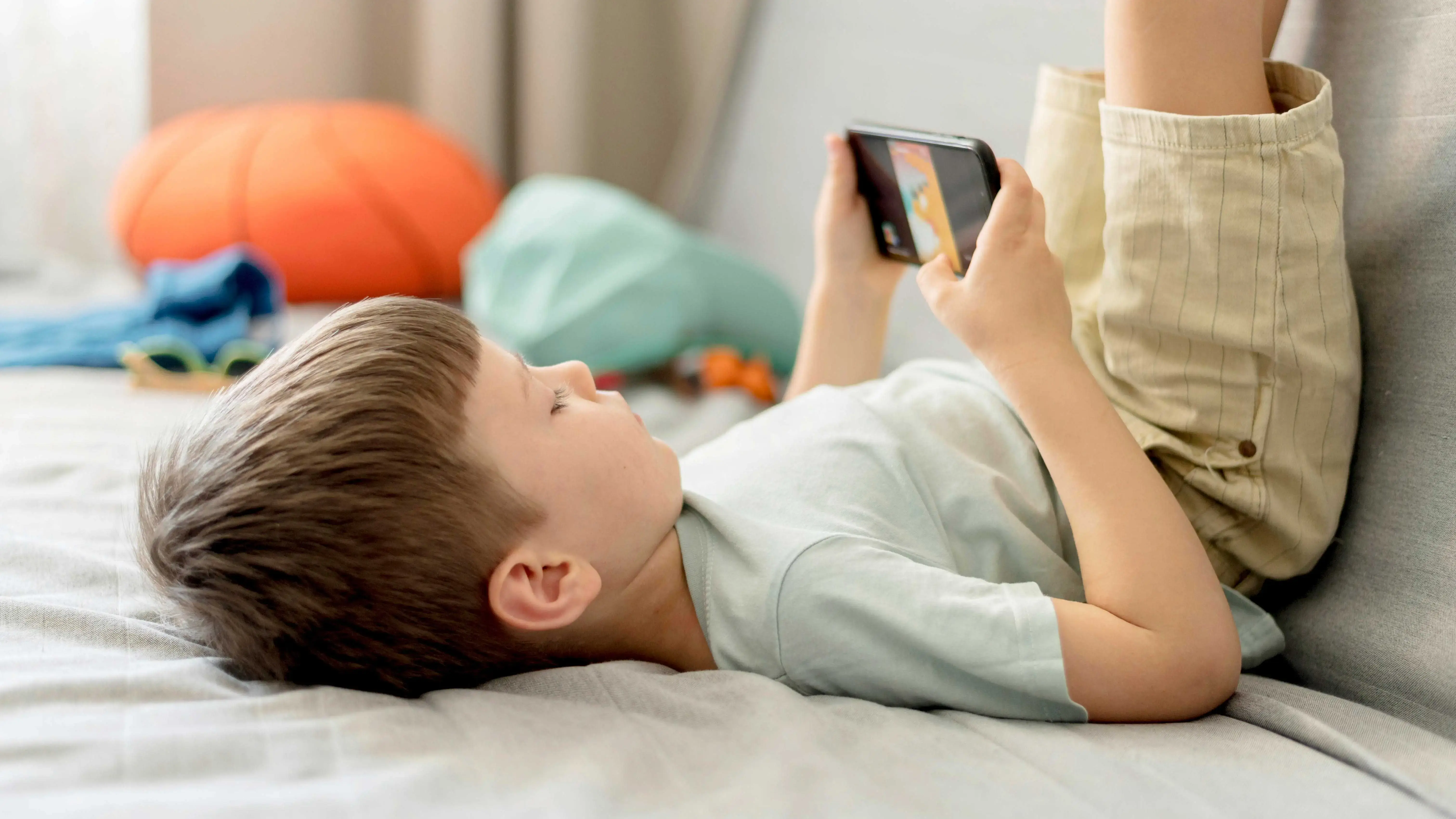
Child and adult content
Today, in a world of rapid digital progress, almost every child has their own smartphone or receives it from their parents for a while. But, at times, the frequent use of a mobile device instead of development in a child leads to dependence.
Someone might say that if you know where the child is by giving him a smartphone or tablet, then you can be sure that he will not get into trouble, will not get into a fight, and so on. But the fact is that the constant use of mobile devices is also fraught with bad consequences, since when using gadgets, a child often sees various adult content and not only watching videos.
Usually, by adult content they mean pornographic materials, but, unfortunately, this is far from all. This may also include:
- action or horror movies;
- advertising of pharmaceuticals;
- video games with scenes of violence;
- video with obscene language;
- advertising of tobacco products or alcohol and others.
All this often has a bad effect on the psyche of the child, and if the child often sees this, then he begins to think that this is normal. So, over time, children begin not only to look for such information on their gadgets, but also to realize what they see in real life. And if you do not respond in time, then serious problems will soon begin.
Scientists at Childwise, who conducted research on children's dependence on mobile gadgets, found that children who spent a lot of time on a tablet or smartphone moved very little. In this regard, the children began to have a poor metabolism, obesity, vision problems, in some cases the child became aggressive and uncontrollable.
But when children had access to screen limit gadgets, they became more sociable, inquisitive, ate well and wanted to play more active games that contributed to their development. And based on research, scientists have determined the norms for the use of gadgets for children:
- Children aged 1-2 years. This is the most receptive age and should not be spent on gadgets. Such babies need more activity and parental care, so the maximum time spent behind the display should be no more than a couple of minutes a day.
- Children 3-4 years old. At this age, children not only perceive the characters of cartoons and games well, as well as the development of the story, but also get used to the environment. Scientists recommend that a child’s regimen be created, in which he will be allowed to use a mobile device for no more than 1 hour a day.
- Primary school students (5-10 years old). Here it is necessary to create a certain balance between games on the phone and other, more useful events in life. At this age, you need to devote more time to developing useful skills for the child. As for leisure time with a mobile device, it is recommended to allocate no more than 1-1.5 hours a day.
- Teenagers 11-13 years old. Children of this age can increase the screen time to 2 hours. They can already bear some responsibility for the time spent.
This means that monitor kids are a very important moment in the upbringing of modern children.
What can be done to protect children
As many well-known child psychologists say, and we agree with them, everything should be by mutual agreement. You can’t just set limit screen time, you must calmly and easily explain to the child that this application does not restrict his rights in any way. You are just doing this to protect the child from bad outside influences, and limit app time will allow you to spend more time with friends, outdoor games, and so on.
Of course, with teenagers the situation is much more complicated. In most cases, they perceive this innovation as an interference with their privacy. Often, instead of a calm discussion of the reasons for installing the monitoring app, serious quarrels begin. But parents should not immediately switch to raised voices and force them to install the application on their gadgets. It is better to let the child calm down and later at dinner, having treated him to his favorite dish, calmly start the conversation again, explaining what benefits he will receive from this application. You can say this:
- child filter on phone and tablet is able to remove all intrusive ads from games and videos;
- with the parental tracker, you can always quickly help children out of trouble;
- also kid monitoring makes it possible to protect the child from calls and messages of all kinds bad people;
- the “kids place” function makes it possible to quickly find children if they get lost and cannot return home on their own.
In other words, explain to the children that kids mode does not mean that you will totally monitor and limit them in everything, but on the contrary, you will be more confident in their safety.
As for children 3-10 years old, you can say:
- child lock will be able to disable all videos that may scare them;
- app time limit will give them the opportunity to spend more time with their favorite toys, play longer on playgrounds, make various crafts with their parents;
- also time control allows their eyes to rest and so they won't hurt.
Children of this age group do not need to be told all the features of the Kroha application. The main thing is to bring them to the conclusion that limit time is not bad for them, but rather good, because children will be able to better know the world and understand it.
Remember, monitor child it’s fine, but you need to do it in a non-obtrusive way and you need to make sure that children do not feel disadvantaged, but rather only love and care. This is the most important thing that a child wants to receive from his parents.
Recent articles
The Role of Parents in Supporting Young Bloggers and Streamers
In today's digital age, an increasing number of young individuals are venturing into the realms of blogging and streaming. These platforms offer creative outlets and opportunities for expression, but they also come with challenges that necessitate active parental involvement. This article explores the crucial role parents play in supporting their children’s endeavors as young bloggers and streamers, providing actionable advice to foster a safe and balanced online presence.
Children Development and Gadgets: What Are the Risks
Today, we cannot even imagine our lives without computers and smartphones. Moreover, our children too cannot live without them. They even can hardly imagine that only a few decades ago, in our childhood, a PC was a rare thing to find in households, and the first mobile phones couldn't take photos or connect to the Internet. But times are changing, and today, psychologists and family advisors alarm society with the overuse of gadgets by children.

